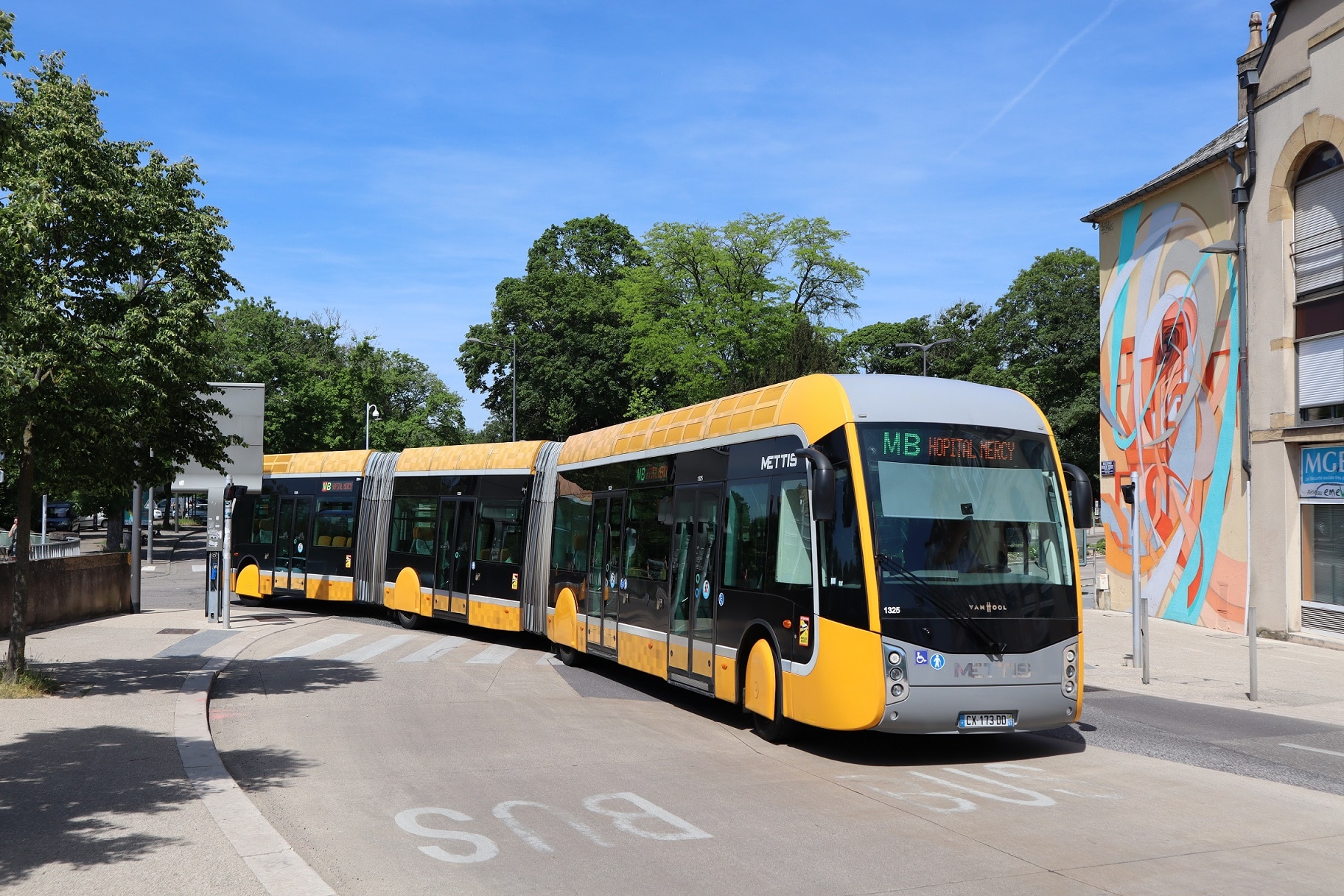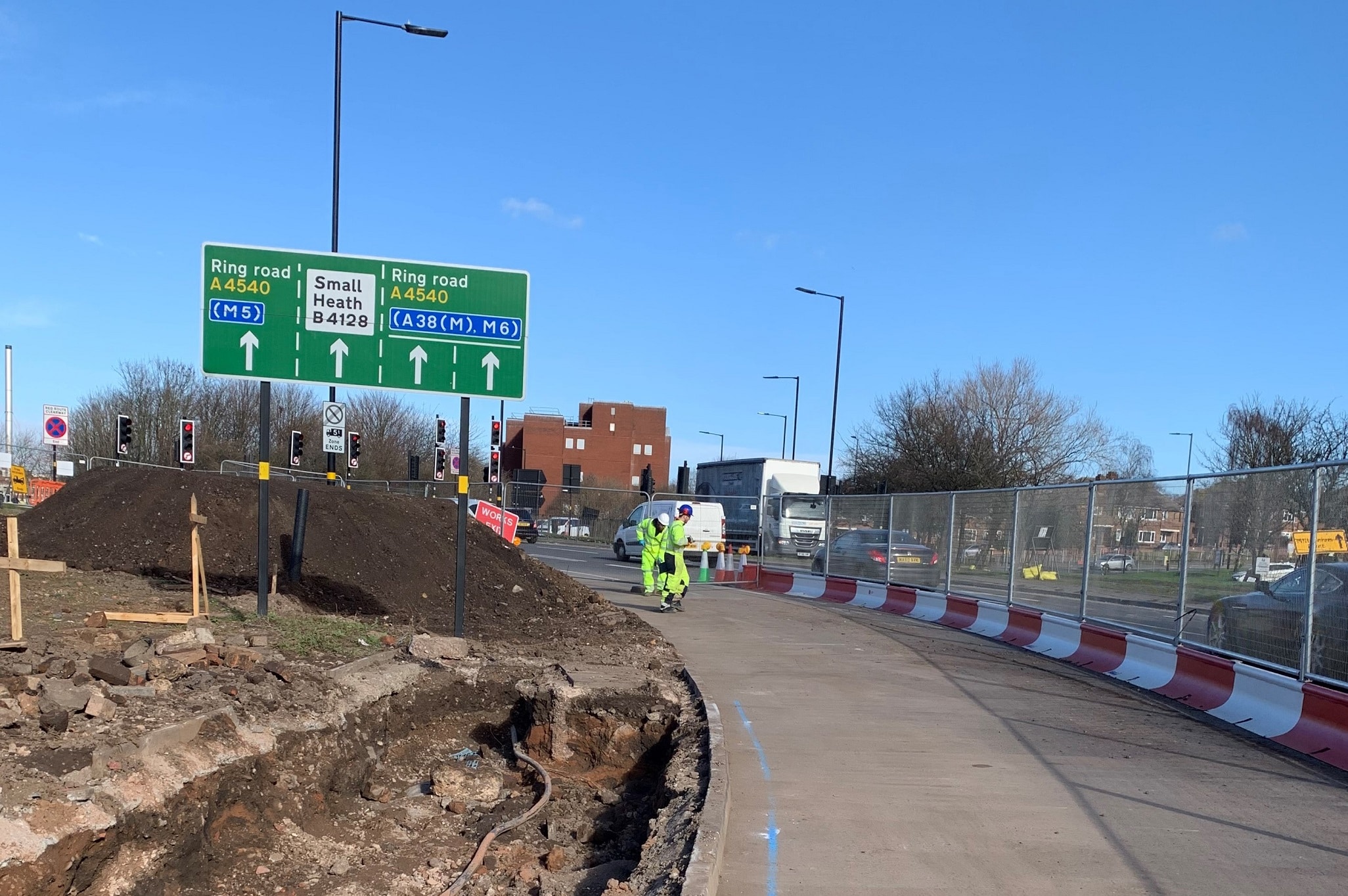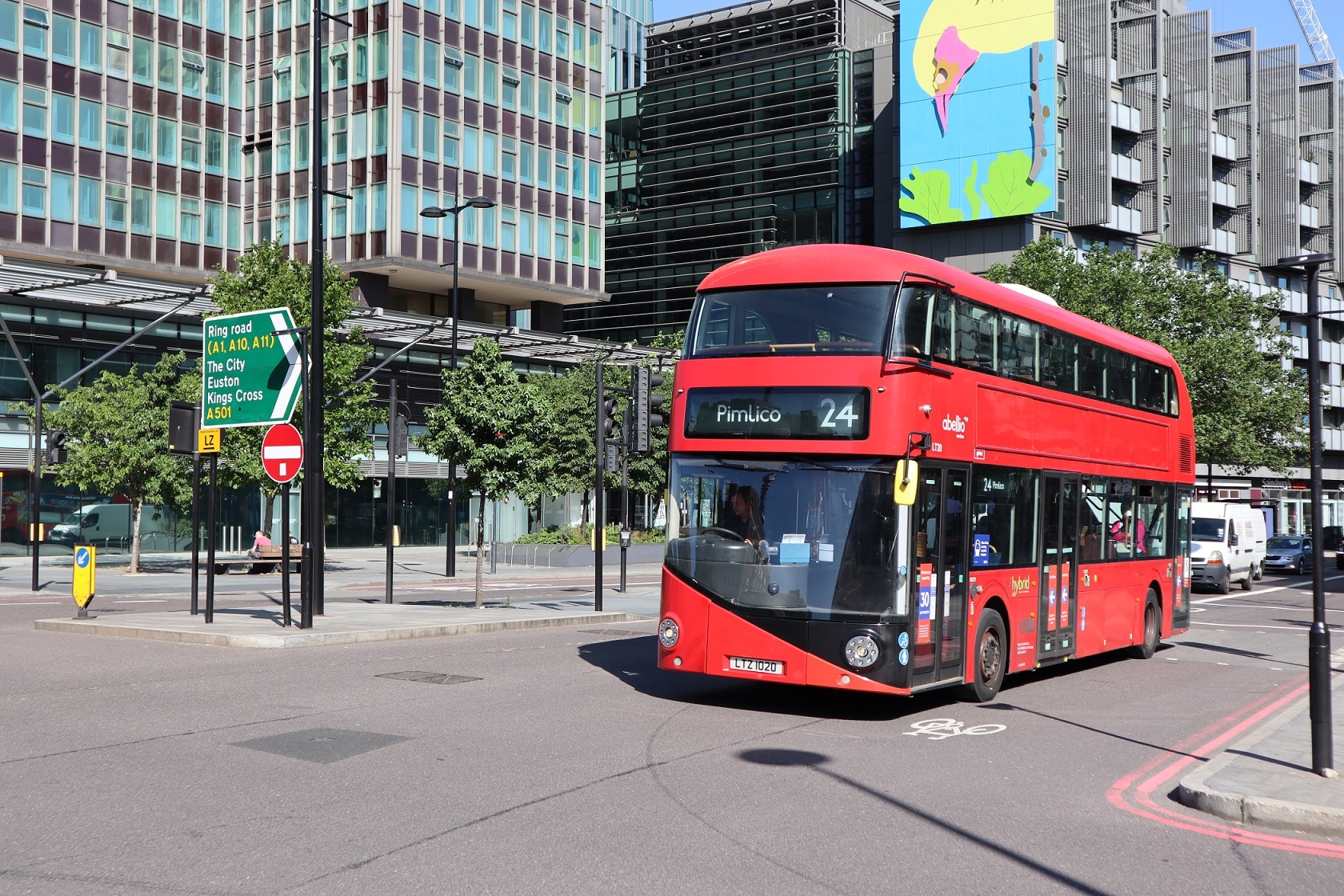Heavy integration of bus rapid transit (BRT) services and their associated infrastructure with existing routes can greatly increase the number of users that investment in BRT benefits, attendees of a BRTuk lunchtime session on 26 May heard.
West Midlands Combined Authority (WMCA) Senior Development Manager Tom Skidmore told the audience that delivery of the conurbation’s Sprint BRT project majors on economic growth through better access to jobs and services. He adds that engagement with relevant local authorities (LAs) is key to the successful delivery of such a project.
While the initial Sprint-branded service, along the A34/A45 corridor between Solihull and Walsall via Birmingham city centre, will ultimately use hydrogen fuel cell-electric 18m articulated buses, Mr Skidmore says that it is imperative that the concept is “tied together into a cohesive package” with existing provision on other routes.
Sprint BRT work will benefit 200 existing buses per day
The A34/A45 Sprint axis will enjoy a significant proportion of reserved road space and benefit from other priority measures. But over the length of that corridor, around 200 other buses per day, providing 20m passenger trips annually, also run. They will benefit from the priority measures being put in place, some of which are highly complex, he continues.
Among them are offside bus lanes and contraflow layouts. But “an unprecedented level of priority on a major road” will be introduced at one junction. There, buses will use a newly constructed piece of signal-controlled carriageway through the centre of a roundabout.
As a further example of major bus priority measures being introduced by WMCA, at another roundabout room for general traffic has been reduced from three lanes to one, with bus-only space on both the nearside and the offside. Mr Skidmore says that strong local policy on bus priority and wider transport schemes is key to such a reallocation.
He adds that Birmingham City Council – as one of the four LAs involved with Sprint – is committed to “pushing car trips out of the city centre,” and that its prioritisation of public transport and active travel has simplified the installation of bus priority.
Articulated buses are key; 24m hoped for initially
While the Solihull to Walsall Sprint service that forms the £88m phase one of the A34/A45 scheme will begin operation ahead of the Commonwealth Games in Birmingham, it will be only a start for the corridor. Phase two, worth £56m, is to be delivered by 2024. That will see the introduction of a service to Birmingham Airport, along with off-board ticketing, diversionary routes and “integration” of Sprint with cycle networks.

Phase one will see zero-emission double-deckers used. The articulated buses – which will be part funded by WMCA’s bid to the Zero Emission Bus Regional Areas scheme – will follow in phase two.
“Only then can we say that the Sprint concept enters operation,” says Mr Skidmore.
Articulated vehicles are key to Sprint BRT, he continues. An 18m diesel-powered Mercedes-Benz Citaro was recently borrowed to test infrastructure, although under WMCA’s earlier plans, 24m bi-articulated buses were to be sourced for the A34/A45 corridor
Vehicle choice generated significant discussion at the BRTuk seminar. While 24m buses – as seen on some BRT services elsewhere in Europe – were initially preferred, concerns were raised by the Department for Transport about a precedent being set by the award of a derogation permitting their use, Mr Skidmore continues.
However, he adds that multi-door boarding is one of the keys to Sprint in the name of reducing stop dwell times. Reducing customers’ interaction with the driver is another part of that. Regular, predictable journey times are seen as a major component of Sprint’s attractiveness by WMCA.
The high-qualiy stops of the Sprint network will be shared with conventional bus services, underlining the shared benefit nature of the investment.



























